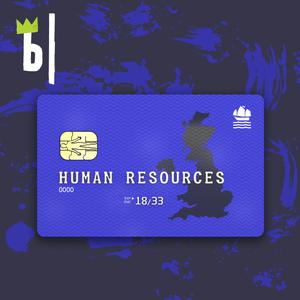
Human Resources
Sony Music
- 52 minutes 6 secondsIn Conversation with Kris Manjapra
Moya and Kris Manjapra discuss his book Black Ghost of Empire, a revelatory historical indictment of the long afterlife of slavery in the Atlantic world.
Learn more about your ad choices. Visit podcastchoices.com/adchoices
5 December 2023, 12:00 am - 34 minutes 36 secondsA Free Town
As abolitionist campaigns gained traction in the late 1700s, the population of formerly enslaved people grew. Those who had been enslaved in the British colonies were ‘freed’ - at first in dribs and drabs, then all at once via two landmark pieces of legislation in 1807 and 1834.
But a new question arose: what would the formerly enslaved do with their freedom?
Featuring historian and researcher, Melissa Bennett and Iyamide Thomas, NHS Engagement Lead, Sickle Cell Society, together they curated ‘The Krios of Sierra Leone’ exhibitions at the Museum of London.
Learn more about your ad choices. Visit podcastchoices.com/adchoices
28 November 2023, 12:00 am - 40 minutes 43 secondsThink of the Children
At the height of the British slave trade, there were no cameras to capture the experiences of the children who found themselves forced into enslavement. There are not even exact numbers for how many youths were sucked into the system - estimates suggest a quarter of the roughly 12 million Black Africans enslaved between the 16th and 19th centuries would be categorised as children. Their stories are some of the hardest to dig up - but people are persisting anyway.
Featuring Christine Whyte, lecturer in global history at the University of Glasgow.
Learn more about your ad choices. Visit podcastchoices.com/adchoices
21 November 2023, 12:00 am - 25 minutes 29 secondsAbolition, Now part 2
In the last episode, ‘Abolition, Now part 1’, I was talking with Historian Diana Patton about the real timeline of Aboliton and what Abolition really meant for those previously enslaved. Towards the end of the episode we began speaking about Apprenticeships and how those previously enslaved were then forced to work for the people who formerly owned them. Should they not want to work, the punishments were fast and brutal.
Learn more about your ad choices. Visit podcastchoices.com/adchoices
14 November 2023, 12:00 am - 29 minutes 47 secondsAbolition, Now part 1
Most people know the basics of this moment. Josiah Wedgewood made some pottery, William Wilberforce made some speeches, John Newton wrote Amazing Grace, and boom! Britain’s narrative arc of national moral redemption was complete and slavery was abolished. Or at least – that’s what we’re told.
Featuring Historian of the Caribbean, Diana Paton.
Learn more about your ad choices. Visit podcastchoices.com/adchoices
7 November 2023, 12:00 am - 36 minutes 56 secondsA Tale of Two Pews
In southwest London, there is an area that plays an outsized role in British history. Today, if you walk through Clapham, you will be greeted by formerly grand black and white manor houses, now playing home to the likes of popular coffee chains. So why are we in the verdant, growing suburb of Clapham today? To examine the congregation of a particular site of religious worship, the Holy Trinity Church.
Featuring Dr. Katie Donnington, senior lecturer in Black Caribbean and African history at the Open University.
Learn more about your ad choices. Visit podcastchoices.com/adchoices
31 October 2023, 12:00 am - 40 minutes 5 secondsThe Colony's Colony
Like Scotland, Ireland was another notch on England’s colonial bedpost, ruled from England continuously since the Tudors re-established the Kingdom of Ireland in the 16th century and made sure it was subordinate to English political authority.
But this isn’t a podcast about what England did to Ireland – many of those exist and tell the story far better than I could. This is a podcast about Britain's slaving past.
Featuring researcher Giselle Gonzalez Garcia.
Learn more about your ad choices. Visit podcastchoices.com/adchoices
23 October 2023, 11:00 pm - 18 minutes 9 secondsIntroducing Physical Capital: Swimming
Why do we swim?
It’s not new, we’ve been swimming for 10,000 years… apparently. But why? We don’t live in the water and so what draws us to it? In this first episode of the podcast we explore the history of humans in the water to get an idea of why we do it.
Hosted by Rebecca Achieng Ajulu-Bushell.
Featuring Bonnie Tsui, Why We Swim
Listen to the full series here
Learn more about your ad choices. Visit podcastchoices.com/adchoices
17 October 2023, 12:00 am - 35 minutes 59 secondsIn The Ring
I love fitness. I love sports. I go to the gym, I walk, I run, I cycle. In my youth, I played team games. And everyone said I was good at sports because of my heritage. My Jamaican ancestry. As a child, this confused me - my white British mother was as sporty as my father, representing her county at tennis in her teen years. But my sporting ability - which is enthusiastic rather than particularly gifted - is always attributed to the half of me that’s Black. It feels - and I’ll just say it - racialised, an echo of the ideas that saw things like superhuman strength and endurance attributed to Black people.
Featuring senior lecturer in American Studies at the University of Manchester, Natalie Zacek
Learn more about your ad choices. Visit podcastchoices.com/adchoices
16 October 2023, 11:00 pm - 32 minutes 41 secondsEveryday People
In this episode we’re venturing onto the bustling city streets of 18 century London, trying to uncover the traces of the Black individuals who became part of the working class communities – and sometimes elite society – of the British capital, the seat of power that directed the trade that has usually brought them to these shores in the first place.
Featuring PhD researcher at the University of Birmingham, Montaz Marché.
Learn more about your ad choices. Visit podcastchoices.com/adchoices
9 October 2023, 11:00 pm - 27 minutes 22 secondsIn Absentia
In the last episode, we looked at the women in Jamaica who owned slaves, both British colonists and the formerly enslaved women who codified their freedom through subjugating others.
But there were also the women who didn’t stay, ones who never set foot in Britain’s slave colonies – the absentee owners.
Featuring historian Dr. Hannah Young, who specialises in gender and absentee slave ownership.
Learn more about your ad choices. Visit podcastchoices.com/adchoices
2 October 2023, 11:00 pm - More Episodes? Get the App
Your feedback is valuable to us. Should you encounter any bugs, glitches, lack of functionality or other problems, please email us on [email protected] or join Moon.FM Telegram Group where you can talk directly to the dev team who are happy to answer any queries.
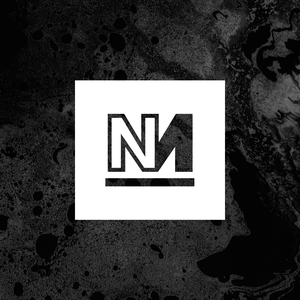 Novara Media
Novara Media
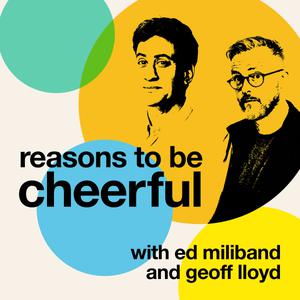 Reasons to be Cheerful with Ed Miliband & Geoff Lloyd
Reasons to be Cheerful with Ed Miliband & Geoff Lloyd
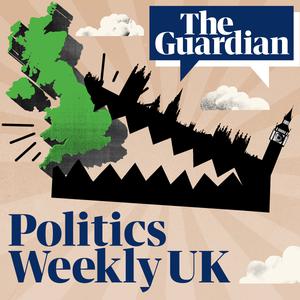 Politics Weekly UK
Politics Weekly UK
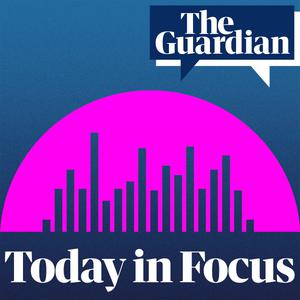 Today in Focus
Today in Focus
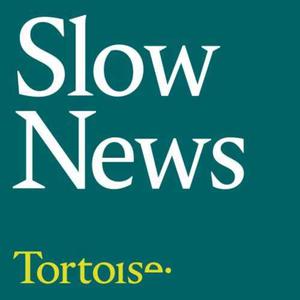 The Slow Newscast
The Slow Newscast
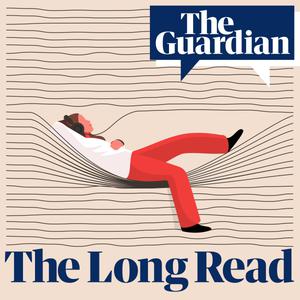 The Audio Long Read
The Audio Long Read